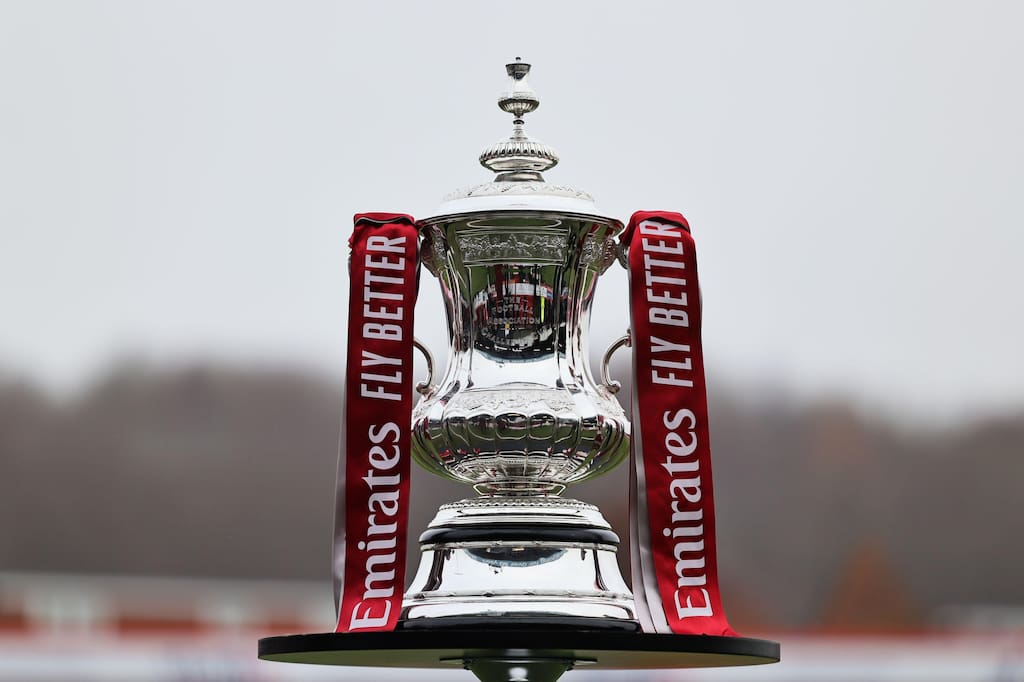
On Thursday early-evening, the Football Association announced that they had sold the domestic FA Cup TV rights to TNT Sport in a four-year deal, starting in the 2025/26 season, so the one after next.
To give you some idea of the backlash against this, following the announcement at 4:31pm, the FA were forced to release a second, hastily put-together piece of PR nonsense defending the decision, which came out at 5:35pm, little over an hour later.
So why are people so outraged about the TV rights being sold to a major TV company? This doesn’t seem to be out of the ordinary.
Well, right now, the FA Cup is broadcast in the UK by BBC and ITV, we are currently in the midst of the third season of the current four-year cycle, both of which, of course, are free-to-air broadcasters.
In the past, pay-TV companies Sky Sports (most-recently in 2008) and BT Sports (as recently as 2021), have shared FA Cup rights with a free-to-air broadcaster.
When ITV won back the rights, alongside BBC, three years ago, this became the first time since 1988 that the FA Cup has been shown fully and exclusively on terrestrial television.
Thus, people are not happy that these rights have been sold entirely to TNT Sports, but that’s not the end of the story.

In the UK, there are a select few sporting events, unofficially known as the ‘crown jewels of sport’, that by law have to be broadcast live free-to-air.
These are, the FIFA World Cup, both men’s and women’s, the Euros, the Grand National, the Epsom Derby, the Rugby League Challenge Cup Final, the Rugby Union World Cup Final, the Wimbledon finals, the Olympics and Paralympics, both summer and winter, and, most-crucial to this discussion, the FA Cup Final.
Of course, at various points, both Sky and BT Sport have broadcast the FA Cup Final, but are only able to do so concurrently to a free-to-air broadcast that everyone is actually watching.
So, despite all the clickbait headlines, the entire FA Cup will not be behind a paywall, because legally this cannot be the case, for the final at least.
The FA’s press release acknowledges this, saying that ‘further details of the free-to-air broadcaster will be confirmed in due course’.
So, in a peculiar turn of events, the FA have sold both available packages to TNT Sports, for a reported £260 million over four seasons, an increase of 15% on the previous cycle, on the condition that they sub-let a “significant number of games” to a free-to-air broadcaster.
It’s expected that a minimum of two matches per round, as well as both semi-finals and the final, will be made free-to-air, but it’s unclear if this is a legally-binding agreement, because TNT surely won’t want to give up marquee matches easily or on the cheap, having paid a substantial amount to acquire them in the first place.
As the FA were delighted to announce, more ties will be broadcast than ever before, with all games taking place outside the three o’clock blackout shown, which is the main factor behind the increase in revenue.
It appears as though FA executives had the cartoonish, metaphorical dollar signs in their eyes, without thinking through the consequences or long-term impacts.
Why the FA were wrong to sell the rights to TNT Sports

Not so long ago, the FA Cup was the biggest show in town but, in modern times, it has been enormously superseded by the Premier League and Champions League in terms of importance and prestige.
The one thing it currently has going for it, above all other club competitions, is that it’s free-to-air.
In January, Arsenal’s tie against Liverpool was watched by 7.6 million people on the BBC, with two million streaming via iPlayer, a new record for a third round tie, eclipsing the previous highest of 7.3 million.
Exactly four weeks later, kicking off at exactly the same time, the same two clubs met at the same venue in the Premier League, for a more important game most would argue, but this fixture was viewed, legally anyway, by almost half that of the FA Cup tie, due to the fact it was on Sky Sports that not everyone has or can afford.
Real Madrid President Florentino Pérez often claims, in his attempts to push through a Super League, that young people don’t watch football, which would be true if he rephrased it as: young people would like to watch football, but can’t, because it’s all behind a paywall.
The Arsenal vs Liverpool example proves that there is demand out there, but the Premier League and Champions League are hidden away, with the FA Cup following suit, giving up their biggest unique selling points.
FA chief executive Mark Bullingham said: “The Emirates (gotta get the sponsor’s name in) FA Cup is our crown jewel”, which is an interesting turn of phrase, in relation to the legal “crown jewels of sport” we mentioned earlier, that the FA are seemingly trying to remove themselves from.
The last issue to raise pertains to why TNT Sports is fundamentally a bad choice.
Did you wonder why BT Sport rebranded into TNT Sports last summer, well it was because BT would’ve gone bust otherwise, hemorrhaging money at an unsustainable rate.
TNT Sport is a merger between British Telecom (BT) and and Warner Bros. Discovery, the latter of which already owned Eurosport, which will disappear as a brand in 2026.
This all came about, essentially, because BT’s subscription numbers were pitifully low compared to what they needed to be profitable, considering the gigantic rights fees they’re paying the Premier League and UEFA.
At no point did BT Sport ever surpass two million subscribers, while the firm cost over £800 million to run per annum, thereby making a substantial loss during it’s 11-year existence.
These subscriber numbers have not seen any significant increase post-rebrand.
The FA statement frankly contained all the usual PR jargon and hogwash, but two direct quotes stood out:
1) “The Emirates FA Cup captures the imagination of clubs, communities, and the general public each season, with unrivalled stories written into English football folklore, and all of them will be told across TNT Sports.”
2) “The Emirates FA Cup and the incredible stories it creates every season goes well beyond football, making TNT Sports the perfect home as we continue to tell the stories that matter most to the fans.
No, I’m sorry, TNT Sports is not the ‘perfect home’ because hardly anybody has it, so it’s all well and good that ‘unrivaled stories’ will be told across TNT Sports, but, as the famous philosophical proverb, sort of, goes: if the FA Cup is broadcast, but only on a channel nobody can afford, did it even happen at all?
From TNT’s point-of-view, they’ve already invested huge amounts of money into having Premier League and Champions League rights, so if they think the FA Cup are what’s going to drastically increase subscription numbers, they’re very much mistake that’s for sure.
:quality(70)/s3.amazonaws.com/arc-authors/xlmedia/31ed1d86-a42b-4acd-9517-813a526d3a0b.png)





